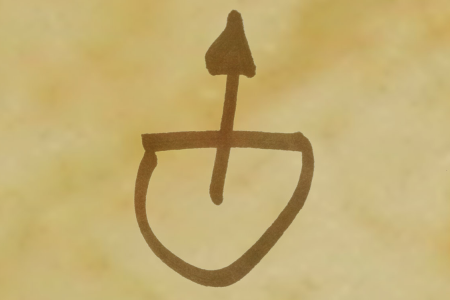VaEtchanan (And I Besought) Parsha – Weekly Torah Portion
Deuteronomy, 3:23-7:11
This Week’s Torah Portion | July 14-20, 2013 – Av 7-13, 5773
In A Nutshell
The portion, VaEtchanan (And I Besought), repeats the prohibition that Moses was prohibited—to enter the land of Israel—and that Joshua is to succeed him and lead the people to the land of Israel. The portion deals with the commandment to keep the Torah and remember the standing at the foot of Mount Sinai, as well as with the concept of repentance, which appears here for the first time. Here appears the known text of Shema Ysrael (Here, O Israel).
Moses makes another speech, where he repeats the Ten Commandments. He also distinguishes three cities of refuge on the Eastern side of the Jordan River, warns of idol worship in the land of Israel, and instructs the destruction of the statues. He also reminds the people that the Creator is the one who led them into the land of Israel, the good land that they are destined to inherit.
![]()
Commentary by Dr. Michael Laitman
The portion, VaEtchanan (And I Besought), contains all the conditions for the dwelling of the people of Israel in the land of Israel. The people of Israel began its history with Abraham, who established in Babylon a group. That group distinguished itself from the rest of the Babylonians, who did not wish to unite “as one man with one heart,” meaning to be in the quality of Hesed (mercy), which is Abraham’s quality.
That group of people agreed to live in Arvut (mutual guarantee), and actually began the formation process of the people of Israel. Following the exodus from Egypt, the group took upon itself the commitment to be as one nation despite the problems and the egos of its people.
The formation of a single nation was conditioned upon a successful “passage” of the ordeal at the foot of Mount Sinai, which is a mountain of Sinaa (hate). On Mount Sinai, the people assumed the preparatory stipulation for climbing over that mountain—being “as one man with one heart.” Only by adhering to this condition is it possible to receive the Torah, the upper force that can unite everyone. That condition is met through the point in the heart of each person, a point named Moses, which draws the people onward into the desert and subsequently to the land of Israel. This is the point where everyone must unite.
Continue reading “VaEtchanan (And I Besought) Parsha – Weekly Torah Portion”
Glossary – VaEtchanan (And I Besought) – Weekly Torah Portion
Glossary of Terms Used in the VaEtchanan Weekly Torah Portion
- Observing (Keeping) the Torah
- Repentance
- The Ten Commandments
- Annihilation of Idol Worship
- Shema Israel (Hear, O Israel)
- Remembering
Observing (Keeping) the Torah
It is constant keeping of our attitude toward others. The Torah means “love your neighbor as yourself.” It is love that must always be before our eyes.
Repentance
Repentance is returning from the ego, from the negative attitude toward others, and into a good attitude to others.
The Ten Commandments
Distinguishing ten parts that are all egotistical, cruel, aiming to exploit others, and which are then corrected from aiming to receive into aiming to bestow.
Annihilation of Idol Worship
The idols are money, gold, beautiful cars, and whatever we want that is not necessary for our sustenance. With them, it is as though we steal from others. It is written that without flour there is no Torah. That is, one must care of one’s necessities, and also care for the needs of others.
Shema Israel (Hear, O Israel)
Unity. “Hear, O Israel, the Lord our God, the Lord is One.” “The Lord our God” means pure love and bestowal. It is about a bond between us that consists of love and bestowal, and which discloses to us the force of Nature with which we are in Dvekut (adhesion).
Remembering
We should constantly remember, and remind others, about mutual guarantee, Arvut. We must all remind each other that we are obliged to treat each other favorably, above the bad relations between us. We need to love others as we love our children: at times we may be unhappy with our children’s character, but we love them nonetheless.
Do we have to come to being as one family?
Yes, and we must always remember it.
So Arvut is the umbrella that should cover all the gaps between us, all the conflicts. In fact, we need not change at all, just place the Arvut above us.
Precisely, and then we will reach abundance. This is what lies ahead.
